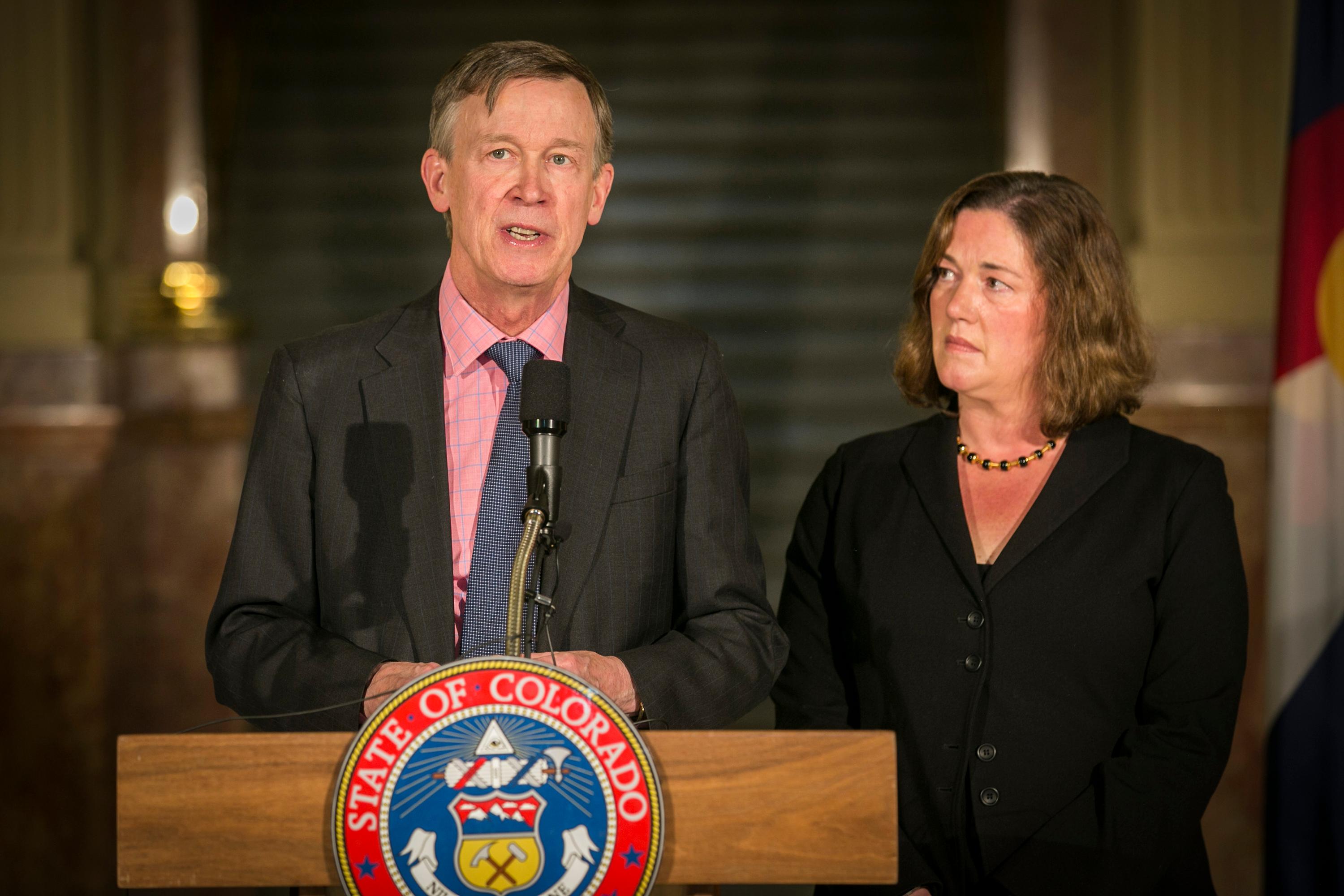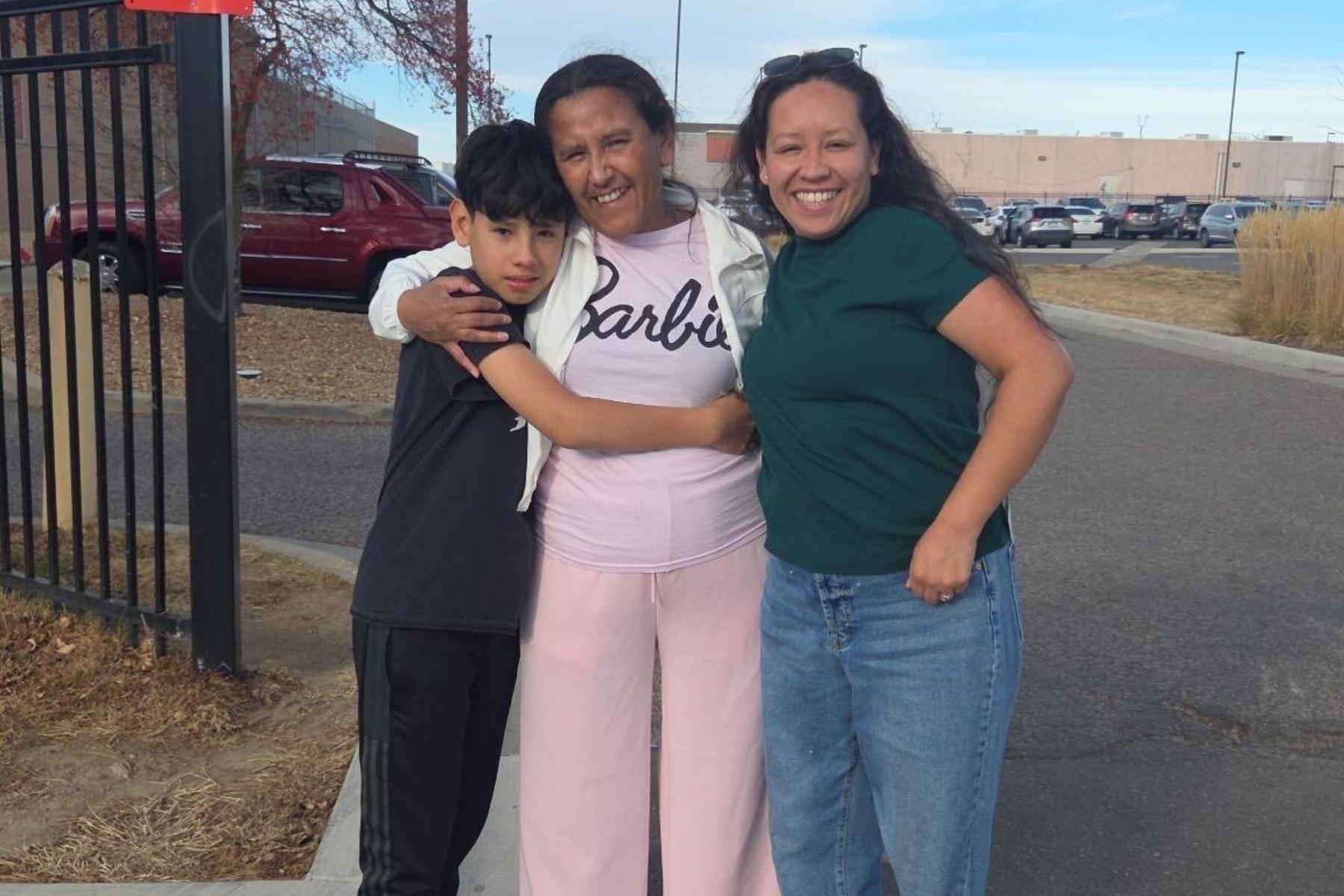
Cindy Torres knew her 1987 Subaru wagon was in trouble late last year.
Oil had started dripping from the car onto the pavement outside her house in Boulder’s Mapleton Mobile Home Park. The leak violated the community rules, but Torres worried a repair could burn through the meager income she received through a disability retirement program. A new set of wheels seemed like the best option — if she could afford it.
Some online research revealed Torres qualified for a pair of discounts meant to help lower-income drivers purchase electric vehicles. A state program offered a $4,000 rebate for a used EV if a buyer could trade in an older or high-emissions gas-powered car, and an Xcel Energy program promised an additional $3,000.
All Torres needed was a secondhand EV with a low price tag. She soon found it at Boulder Nissan, a nearby dealership willing to honor both rebates as upfront discounts on the cost of a 2015 Nissan Leaf. The combined savings allowed Torres to buy the gray hatchback for just over $650.
“I didn't realize how much mental and emotional energy went into having a car that was not in good condition,” Torres said. “Getting into this, everything on it works, which is, gosh, it’s just a blessing.”
One trick to getting steep discounts on an EV in Colorado? A helpful car dealership
Transportation is Colorado’s largest source of planet-warming emissions. The state's struggle to decarbonize the sector is also the main reason it is on track to miss its first legally mandated climate targets in 2025 and 2030.
Colorado is now betting EV discounts can nudge it closer to the overarching goals. Gov. Jared Polis has pledged to put nearly a million plug-in vehicles on the road by 2030. To reach the threshold, his administration has developed programs to ensure wealthy drivers aren’t the only residents buying EVs.
Torres, however, doubts she’d have bought the new EV without help from a willing car dealership. After finding an ad for the hatchback, she said a sales representative at Boulder Nissan further cut the price so it wouldn’t overwhelm her budget. He also helped with the paperwork, which Torres said allowed her to use both discounts at the cash register rather than filing paperwork and waiting to obtain the rebates afterward.
“We went for a test drive, and he made it happen. It was easy. It was just easy,” Torres said.
Ed Olsen, the sales manager for Boulder Nissan, said his dealership specializes in helping customers obtain income-qualified discounts, but he fears most drivers aren’t aware of the potential bargains available to all residents.
He cited Colorado’s EV tax credit as a chief example. The benefit offers a $5,000 discount on the purchase of a new plug-in vehicle plus another $2,500 in savings if the car's MSRP is less than $35,000. The state tacks on an additional $600 discount if the car is financed or leased, which allows his dealership to offer a $99 monthly lease special on an entry-level Nissan Leaf.
“A $99 payment on a car is cheaper than most people's cell phone bills,” Olsen said.

A successful cash-for-clunkers program
Torres said the Vehicle Exchange Colorado Program was another key reason she was able to buy an EV.
The state’s cash-for-clunkers initiative, launched last summer, is designed to cut local air pollution by helping low-income residents buy EVs. To participate, a resident must earn less than 80 percent of their area median income or qualify for a number of other government benefit programs. They also must fully own a car that’s either at least 12 years old or recently failed an emissions test.
In exchange for scrapping the older vehicle, the buyer receives a $6,000 discount on the lease or purchase of a new EV or $4,000 toward a used model. Buyers can also combine or “stack” the savings with other state and federal discount programs, plus rebates offered by power providers like Xcel Energy.
Interest in the EV discount program has already far exceeded expectations. Ari Rosenblum, a spokesperson for the Colorado Energy Office, said the state has already issued at least five times more rebates than it anticipated giving out in the program’s first full year.
Part of the goal is to help everyone enjoy the benefits of owning a battery-powered vehicle. Carrie Atiyeh, the associate director of transportation for the Colorado Energy Office, said research has repeatedly shown that it is cheaper to own and operate an EV. “We don't want the upfront price of that vehicle to be a barrier to entry,” Atiyeh said.
While the program worked out for Torres, she said buying the Nissan Leaf was still a financial tightrope act that required her to empty a can filled with roughly $40 in spare change. Another Xcel Energy program offered $1,300 to install an EV charging plug, but Torres needed a loan from her aunt to pay the extra $495 necessary to run a wire underneath her mobile home.
Torres said the EV hatchback still fits her lifestyle and her pocketbook. The 80-mile range isn’t much, but it's enough for errands and hikes around Boulder County. Her dog, Jesse, has also already benefitted from the addition of power windows, which Torres said makes it far easier to catch snoutfuls of open air.
Torres’ one concern is what the EV might signal about her own identity. While her roots are in Texas, she can’t help but feel the new car cements her status as a bona fide Boulderite.
“I wear Birkenstocks, and I have a Nissan Leaf, and I think, ‘Who am I? Who have I become?’”









